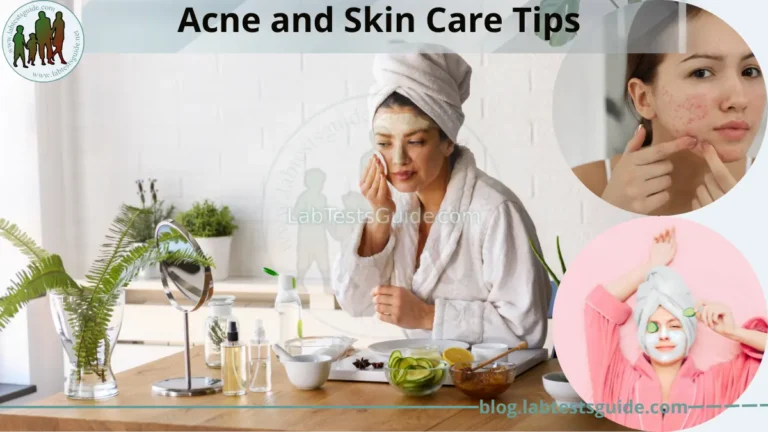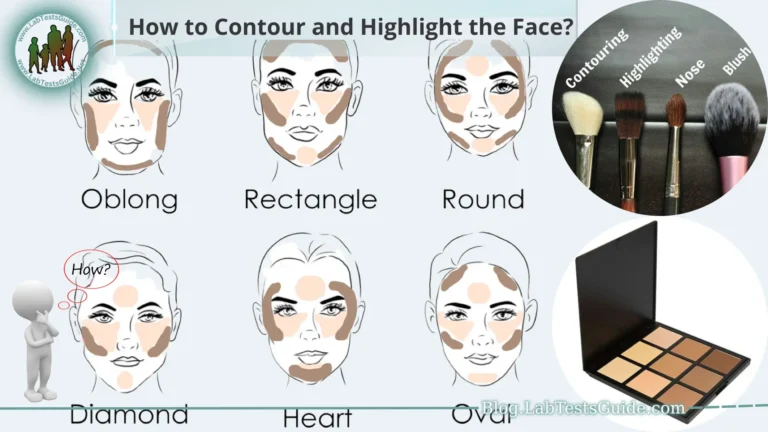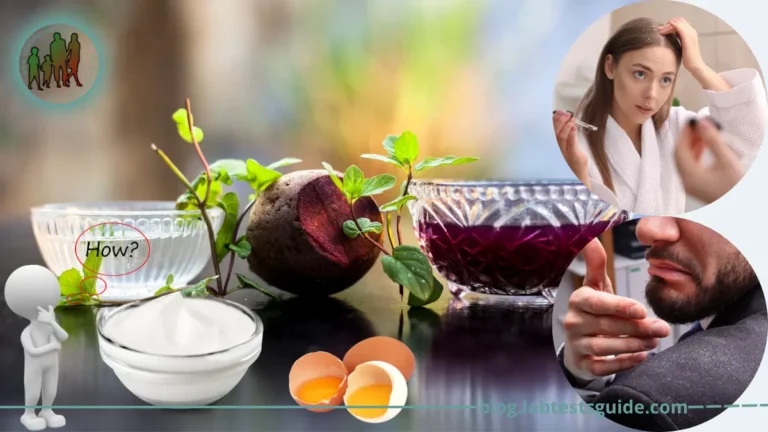Acne is a common skin condition that affects people of all ages, causing pimples, blackheads, whiteheads, and sometimes even deeper cysts. It occurs when hair follicles become clogged with oil and dead skin cells, leading to inflammation and the development of acne lesions. While there are various over-the-counter and prescription medications available to treat acne, many people prefer to explore home remedies as a first-line approach due to their natural and cost-effective nature.

Home remedies for acne involve using readily available ingredients and substances that are believed to have beneficial effects on the skin. These remedies aim to reduce inflammation, unclog pores, and promote the healing of existing acne lesions. While they may not work for everyone, many individuals have reported positive results with these remedies.
Understanding Acne:
Several factors contribute to the development of acne, including.
- Excess Oil Production: The sebaceous glands in the skin produce an oily substance called sebum, which helps lubricate the skin. However, in individuals with acne, these glands produce an excess amount of sebum, leading to oily skin and clogged pores.
- Dead Skin Cells: The skin naturally sheds dead skin cells, but in people with acne, these cells can accumulate and mix with the excess sebum, blocking the hair follicles and contributing to the formation of acne lesions.
- Bacteria: The bacterium Propionibacterium acnes (P. acnes) is a normal resident of the skin, but it can multiply in clogged pores, causing inflammation and worsening acne symptoms.
- Hormonal Changes: Hormonal fluctuations, particularly during puberty, menstrual cycles, and hormonal disorders, can stimulate the sebaceous glands to produce more oil and contribute to acne development.
- Inflammation: When the hair follicles become clogged, the body’s immune response kicks in, leading to inflammation and the characteristic redness and swelling associated with acne.
It’s important to note that acne can have physical and emotional effects on individuals, causing self-esteem issues and impacting their quality of life. It is a multifactorial condition, and treatment approaches can vary depending on the severity of the acne and individual factors. Home remedies for acne can play a supportive role in managing the condition, but it’s advisable to consult with a healthcare professional for personalized advice and treatment options.
Factors Contributing to Acne:
Here are some key factors that contribute to the development of acne.
- Excess Oil Production: Overactive sebaceous glands produce more oil than necessary, creating an environment favorable for acne development. The excess oil can mix with dead skin cells and clog the hair follicles, leading to the formation of acne lesions.
- Bacteria: The bacterium Propionibacterium acnes (P. acnes) is commonly present on the skin. However, in individuals prone to acne, this bacterium can multiply excessively in clogged pores. P. acnes releases substances that trigger inflammation, leading to the characteristic redness and swelling associated with acne.
- Clogged Pores: When dead skin cells, oil, and bacteria accumulate in the hair follicles, they can form plugs that block the pores. This creates an environment for the development of various types of acne lesions, including blackheads, whiteheads, pimples, and cysts.
- Diet: Although the relationship between diet and acne is still a topic of debate, some studies suggest that certain dietary factors may influence acne development. High glycemic index foods, dairy products, and foods rich in saturated and trans fats have been implicated in worsening acne symptoms in some individuals.
- Stress: While stress does not directly cause acne, it can exacerbate existing acne or contribute to breakouts. Stress triggers the release of stress hormones, such as cortisol, which can increase oil production and inflammation, making acne worse.
It’s important to note that the severity and persistence of acne can vary greatly among individuals. Addressing these contributing factors and adopting a comprehensive approach that includes lifestyle modifications, proper skincare, and, in some cases, medical interventions can help in managing and improving acne symptoms.
Importance of Home Remedies:
Here are some reasons why home remedies are important.
- Availability and Affordability: Home remedies often utilize ingredients that are easily available in most households or can be easily obtained from local stores. This accessibility makes them convenient for individuals seeking to address their acne concerns without the need for expensive or specialized products.
- Natural Ingredients: Many home remedies for acne incorporate natural ingredients that are believed to have beneficial properties for the skin. These ingredients often have fewer artificial additives and chemicals compared to commercial skincare products, making them a potentially gentler option for individuals with sensitive skin.
- Personalization: Home remedies allow for customization based on individual preferences and skin types. Since everyone’s skin is unique, a personalized approach to skincare can be beneficial. Home remedies can be adjusted, combined, or modified to suit individual needs, offering flexibility in addressing specific acne concerns.
- Supportive Approach: Home remedies can serve as a supportive component of an overall acne management plan. While they may not provide a complete solution, they can contribute to reducing inflammation, unclogging pores, and promoting the healing of acne lesions. They can be used in conjunction with other treatments recommended by healthcare professionals.
- Self-Care and Empowerment: Engaging in self-care practices, such as using home remedies for acne, can have a positive impact on an individual’s well-being. Taking proactive steps to address acne concerns can empower individuals to actively participate in their skincare routine and overall health.
It’s important to note that the effectiveness of home remedies for acne can vary among individuals. What works for one person may not work for another. Additionally, severe or persistent acne may require professional medical intervention. It’s always advisable to consult a dermatologist or healthcare professional for personalized advice and treatment options, especially if acne is significantly impacting one’s quality of life.
General Tips for Managing Acne:
here are some general tips to help manage acne.
- Cleanse your face gently: Use a mild, non-comedogenic cleanser to wash your face twice a day, morning and evening. Avoid harsh scrubbing or using rough towels, as it can irritate the skin and worsen acne.
- Avoid touching your face: Touching your face can transfer bacteria and dirt from your hands onto your skin, potentially exacerbating acne. Avoid picking or squeezing acne lesions, as it can lead to scarring and further inflammation.
- Use non-comedogenic skincare products: Look for skincare and cosmetic products labeled as non-comedogenic, meaning they are less likely to clog pores. Oil-free and water-based formulas are generally more suitable for acne-prone skin.
- Moisturize: Even if you have oily skin, it’s important to keep your skin hydrated. Choose a lightweight, non-comedogenic moisturizer to prevent dryness without adding excessive oil.
- Protect your skin from the sun: Use a broad-spectrum sunscreen with at least SPF 30 to protect your skin from harmful UV rays. Sun exposure can worsen acne and lead to post-inflammatory hyperpigmentation.
- Avoid excessive oil and grease on your hair: Keep hair products away from your face as they can contribute to clogged pores. Opt for oil-free or non-comedogenic hair products, and try to keep your hair off your face, especially when sleeping.
- Maintain a healthy lifestyle: Eating a balanced diet, staying hydrated, getting regular exercise, and managing stress levels can all contribute to overall skin health. While there is no specific “acne diet,” a nutritious diet can support overall well-being.
- Change your pillowcases regularly: Pillowcases can accumulate oil, bacteria, and dead skin cells. Changing them regularly, at least once a week, can help reduce the potential for transferring these substances onto your face while you sleep.
- Avoid tight clothing: Tight clothing, especially in areas prone to acne such as the back and chest, can cause friction and irritation, leading to breakouts. Opt for breathable fabrics and loose-fitting clothing.
- Be patient and consistent: It takes time for acne treatments to show results. Be patient and consistent with your skincare routine, giving treatments and home remedies enough time to work. Avoid trying multiple remedies at once, as it can make it difficult to determine what is effective.
Remember, individual results may vary, and it’s important to consult with a dermatologist or healthcare professional for personalized advice and treatment options, especially for severe or persistent acne.
Best Home Remedies for Acne:
- Tea Tree Oil: Tea tree oil has antimicrobial and anti-inflammatory properties that can help reduce acne-causing bacteria and inflammation. Dilute tea tree oil with a carrier oil, such as coconut oil, and apply it to the affected areas using a cotton swab.
- Apple Cider Vinegar: Apple cider vinegar contains organic acids that can help exfoliate the skin and kill bacteria. Mix equal parts of apple cider vinegar and water, and apply it to the skin using a cotton ball. Rinse off after 5-10 minutes.
- Honey: Honey has antibacterial properties and can help soothe inflamed skin. Apply raw honey directly to the affected areas or create a honey mask by mixing it with other ingredients like cinnamon or turmeric.
- Aloe Vera: Aloe vera has anti-inflammatory and soothing properties that can help calm irritated skin. Extract the gel from an aloe vera leaf and apply it directly to the acne-prone areas. Leave it on for 10-15 minutes and rinse off with water.
- Green Tea: Green tea contains antioxidants and anti-inflammatory compounds that can help reduce acne inflammation. Brew green tea and allow it to cool. Apply the cooled tea to the skin using a cotton ball or use it as a face wash.
- Lemon Juice: Lemon juice has natural antibacterial properties and can help exfoliate the skin. Dilute fresh lemon juice with equal parts water and apply it to the affected areas using a cotton ball. Avoid sun exposure as lemon juice can make the skin more sensitive to sunlight.
- Witch Hazel: Witch hazel has astringent properties that can help reduce oiliness and inflammation. Apply witch hazel to the skin using a cotton ball and leave it on or rinse off after a few minutes.
- Cucumber: Cucumber has a cooling and soothing effect on the skin. Slice a cucumber and place the slices directly on the affected areas for 10-15 minutes. Alternatively, blend cucumber to create a paste and apply it as a mask.
- Turmeric: Turmeric has anti-inflammatory and antimicrobial properties. Create a paste by mixing turmeric powder with water or honey, and apply it to the skin. Leave it on for 10-15 minutes before rinsing off.
- Oatmeal: Oatmeal can help absorb excess oil and exfoliate dead skin cells. Mix ground oatmeal with water to form a paste and apply it to the skin. Gently massage in circular motions and rinse off with water.
It’s important to remember that home remedies may not work for everyone and results can vary. It’s always a good idea to test a small patch of skin before applying any new remedy to your entire face. If you have severe or persistent acne, it is recommended to consult a dermatologist for professional advice and treatment options.
Additional Lifestyle Changes to Support Acne Treatment:
Here are some lifestyle tips to consider.
- Maintain a Healthy Diet: While there is no specific “acne diet,” a well-balanced diet can support overall skin health. Include plenty of fruits, vegetables, whole grains, lean proteins, and healthy fats in your meals. Limit processed foods, sugary snacks, and beverages high in added sugars.
- Stay Hydrated: Drinking an adequate amount of water helps keep the skin hydrated and can potentially support skin health. Aim to drink enough water throughout the day to maintain proper hydration.
- Avoid Triggering Foods: Pay attention to whether certain foods exacerbate your acne symptoms. While the relationship between diet and acne is individualized, some people find that certain foods, such as dairy or high-glycemic index foods, can worsen acne. Consider keeping a food diary to identify any potential trigger foods for your skin.
- Get Regular Exercise: Engaging in regular physical activity can help improve blood circulation and support overall well-being. Exercise can also help reduce stress levels, which can be beneficial for managing acne.
- Manage Stress: Chronic stress can contribute to acne breakouts and worsen existing acne. Explore stress management techniques such as meditation, deep breathing exercises, yoga, or engaging in hobbies and activities that help you relax.
- Practice Good Sleep Hygiene: Getting enough quality sleep is important for overall health, including skin health. Establish a regular sleep schedule, create a comfortable sleep environment, and aim for 7-9 hours of uninterrupted sleep each night.
- Avoid Excessive Sun Exposure: While sunlight can temporarily improve acne symptoms, excessive sun exposure can lead to skin damage and potentially worsen acne in the long run. Protect your skin by wearing sunscreen, seeking shade, and wearing protective clothing when spending time outdoors.
- Avoid Smoking and Limit Alcohol Consumption: Smoking and excessive alcohol consumption can negatively impact overall skin health. Smoking can contribute to inflammation and impair the healing process, while excessive alcohol can dehydrate the skin and disrupt its natural balance.
- Avoid Harsh Chemicals and Irritants: Be mindful of the skincare and cosmetic products you use. Avoid products that contain harsh chemicals, fragrances, or ingredients that can potentially irritate the skin. Opt for gentle, non-comedogenic products that are suitable for acne-prone skin.
- Practice Good Hygiene: Keep your skin clean by washing your face gently twice a day. Avoid excessive scrubbing or using harsh cleansers that can strip the skin of its natural oils. Use clean towels, pillowcases, and other items that come in contact with your face to minimize the transfer of bacteria.
Remember, lifestyle changes should be combined with a comprehensive approach to acne management, which may include professional medical advice, appropriate skincare, and treatment options. If your acne is severe or persistent, it is recommended to consult a dermatologist for personalized guidance and treatment.
When to Seek Professional Help:
Here are some signs that indicate it may be time to consult a dermatologist or healthcare professional.
- Severe Acne: If you have widespread or severe acne, characterized by deep cysts, nodules, or widespread inflammation, it’s advisable to seek professional help. Severe acne can lead to scarring and may require more aggressive treatment options.
- Persistent Acne: If your acne does not improve or keeps coming back despite trying over-the-counter remedies and home treatments, it’s recommended to consult a professional. They can assess your condition, determine the underlying causes, and provide appropriate treatment options.
- Emotional Impact: If acne is causing significant emotional distress, affecting your self-esteem, or leading to anxiety or depression, seeking professional help is essential. A dermatologist or healthcare professional can provide support, guidance, and recommend appropriate treatments to address both the physical and emotional aspects of acne.
- Scarring: If your acne has left behind noticeable scars, professional intervention may be necessary. Dermatologists can offer various treatments, such as laser therapy, chemical peels, or microneedling, to help improve the appearance of acne scars.
- Lifestyle Modifications Aren’t Effective: If you have made lifestyle changes, followed a consistent skincare routine, and tried home remedies but still haven’t seen satisfactory results, it’s a good idea to consult a professional. They can assess your individual case, provide a proper diagnosis, and recommend targeted treatments.
- Underlying Medical Conditions: If you suspect that your acne is related to an underlying medical condition, such as hormonal imbalances or polycystic ovary syndrome (PCOS), it’s important to seek professional help. A healthcare professional can evaluate your symptoms, conduct appropriate tests if necessary, and provide appropriate medical interventions.
- Side Effects from Previous Treatments: If you have experienced adverse reactions or side effects from previous acne treatments, it’s important to consult a professional. They can help identify alternative treatment options or adjust your current regimen to minimize any potential risks.
Remember, dermatologists and healthcare professionals have the expertise to diagnose and treat acne effectively. They can provide personalized advice, prescribe medications, and recommend procedures or treatments tailored to your specific needs. Seeking professional help ensures that you receive the appropriate care and increases the likelihood of achieving optimal outcomes for your acne management.
Conclusion:
Acne is a common skin condition that can affect individuals of all ages. While there are various treatment options available, home remedies can serve as a supportive component in managing acne. The accessibility, affordability, and natural approach of home remedies make them an attractive option for many.
Understanding the factors contributing to acne and the importance of home remedies is essential. Factors such as hormonal imbalances, genetics, diet, and skincare habits can influence the development and severity of acne. Home remedies offer a personalized and self-care approach to address acne concerns, promoting a sense of empowerment and active participation in skincare routines.
However, it’s important to note that the effectiveness of home remedies can vary among individuals. What works for one person may not work for another. Severe or persistent acne may require professional medical intervention, and it’s always advisable to consult a dermatologist or healthcare professional for personalized advice and treatment options.
In addition to home remedies, adopting certain lifestyle changes can further support acne treatment. Maintaining a healthy diet, staying hydrated, managing stress levels, and practicing good skincare habits are essential for promoting overall skin health.
Knowing when to seek professional help is crucial. If acne is severe, persistent, causing emotional distress, leading to scarring, or if lifestyle modifications and home remedies are not effective, it’s recommended to consult a dermatologist or healthcare professional. They can provide a proper diagnosis, offer targeted treatments, and provide support and guidance throughout your acne management journey.
Remember, everyone’s skin is unique, and finding the right approach to managing acne may require some trial and error. By combining home remedies, lifestyle changes, and professional guidance, it’s possible to effectively manage acne and promote healthier, clearer skin.






